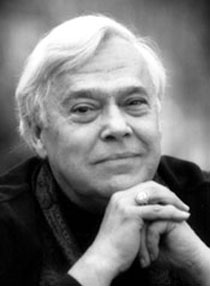Reynolds Price
| Reynolds Price | |
|---|---|
 |
|
| Born |
Edward Reynolds Price February 1, 1933 Macon, North Carolina |
| Died | January 20, 2011 (aged 77) Durham, North Carolina |
| Nationality | American |
| Alma mater | Duke University |
| Occupation | Author and Professor |
Edward Reynolds Price (February 1, 1933 – January 20, 2011) was an American poet, novelist, dramatist, essayist and James B. Duke Professor of English at Duke University. Apart from English literature, Price had a lifelong interest in Biblical scholarship. He was a member of the American Academy of Arts and Letters.
Price was born Edward Reynolds Price in Macon, North Carolina on February 1, 1933, the first of two sons of William Solomon and Elizabeth Price. Both he and his mother narrowly survived an extremely taxing childbirth; family legend states that during these circumstances, Will Price prayed and made a promise to God that if his wife and son survived, he would quit drinking alcohol. Price’s family, struggling under the economic climate of the Great Depression, resided in the rural North Carolina towns of Macon, Henderson, Warrenton, Roxboro, and Asheboro throughout his childhood. Rather than joining other boys his age in sports and outdoor activities, Price developed a childhood fondness for the arts – reading, writing, painting, and opera included. He attended Broughton High School in Raleigh, North Carolina and eventually received a full scholarship to Duke University, where he continued writing, served as the editor of Duke’s literary magazine, was elected to Phi Beta Kappa his junior year and graduated summa cum laude. After graduating in 1955, Price received a Rhodes Scholarship and attended Merton College, Oxford. While at Oxford, Price formed important friendships with the poet W. H. Auden, as well as the biographer Lord David Cecil. He devoted a significant portion of his literary studies, as well as his thesis, to English poet John Milton. Upon graduation with a B.Litt. in 1958, Price secured a position in the Duke University English department, where he stayed for the rest of his career, often teaching courses on Milton, creative writing, and the Gospels.
...
Wikipedia
